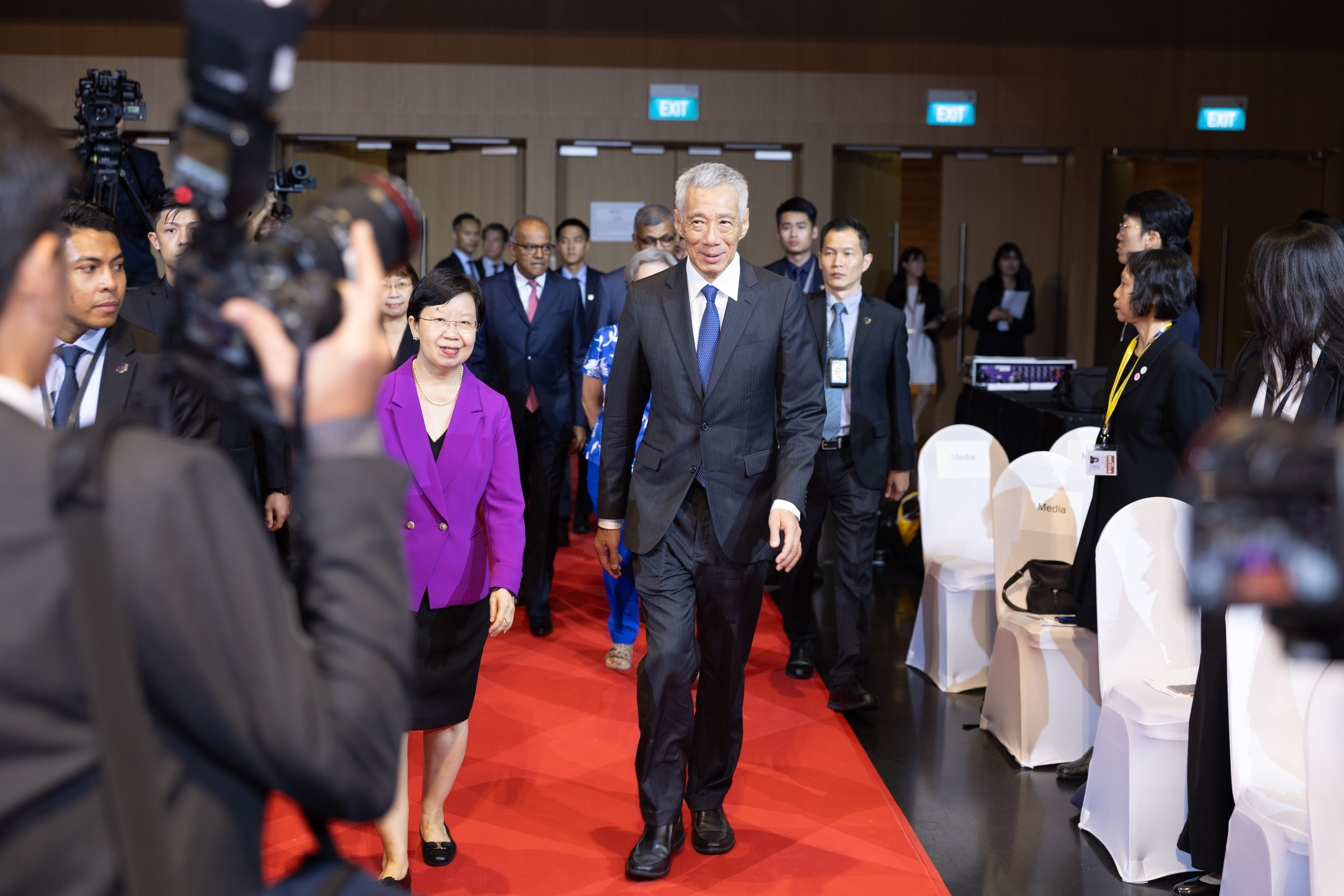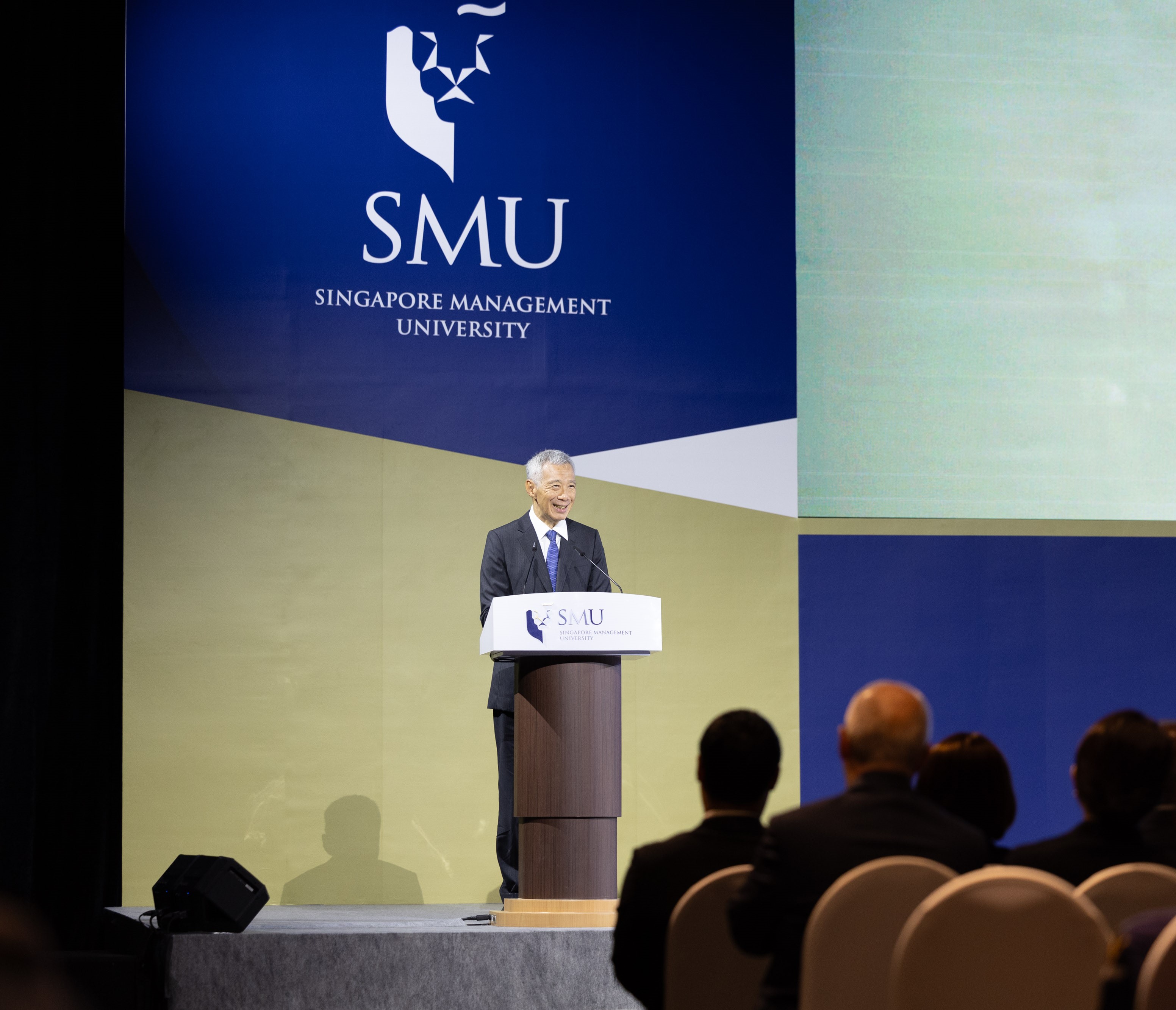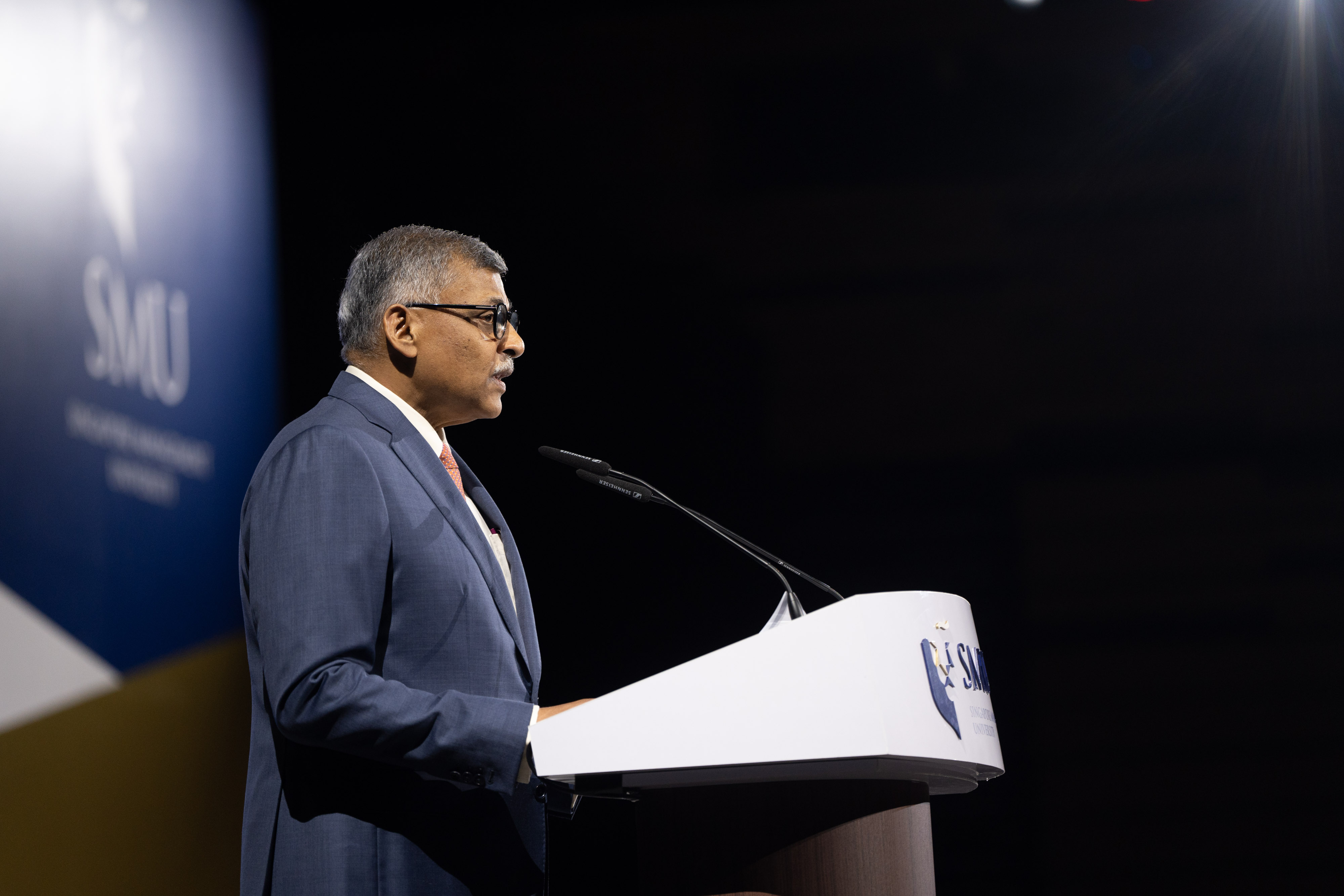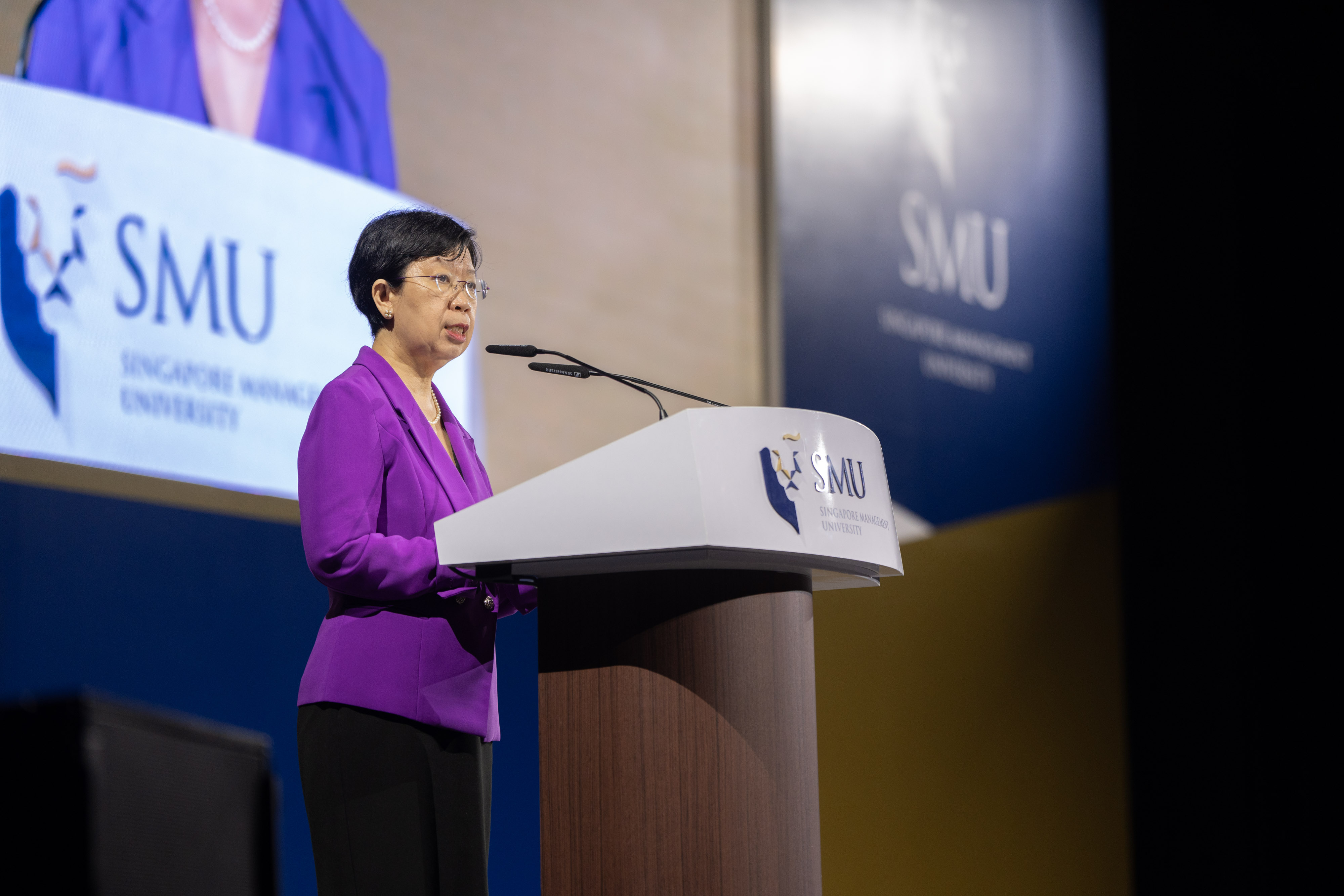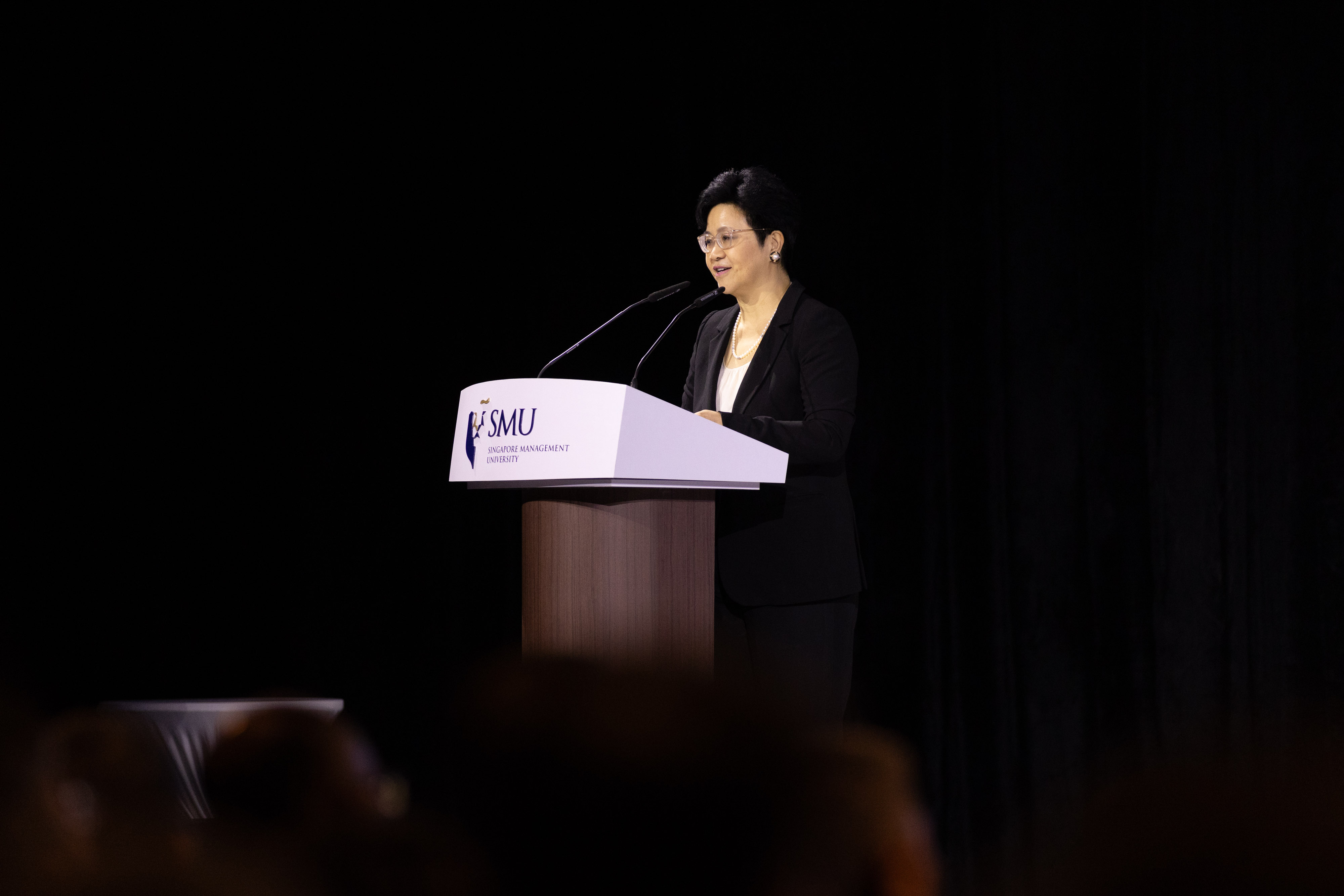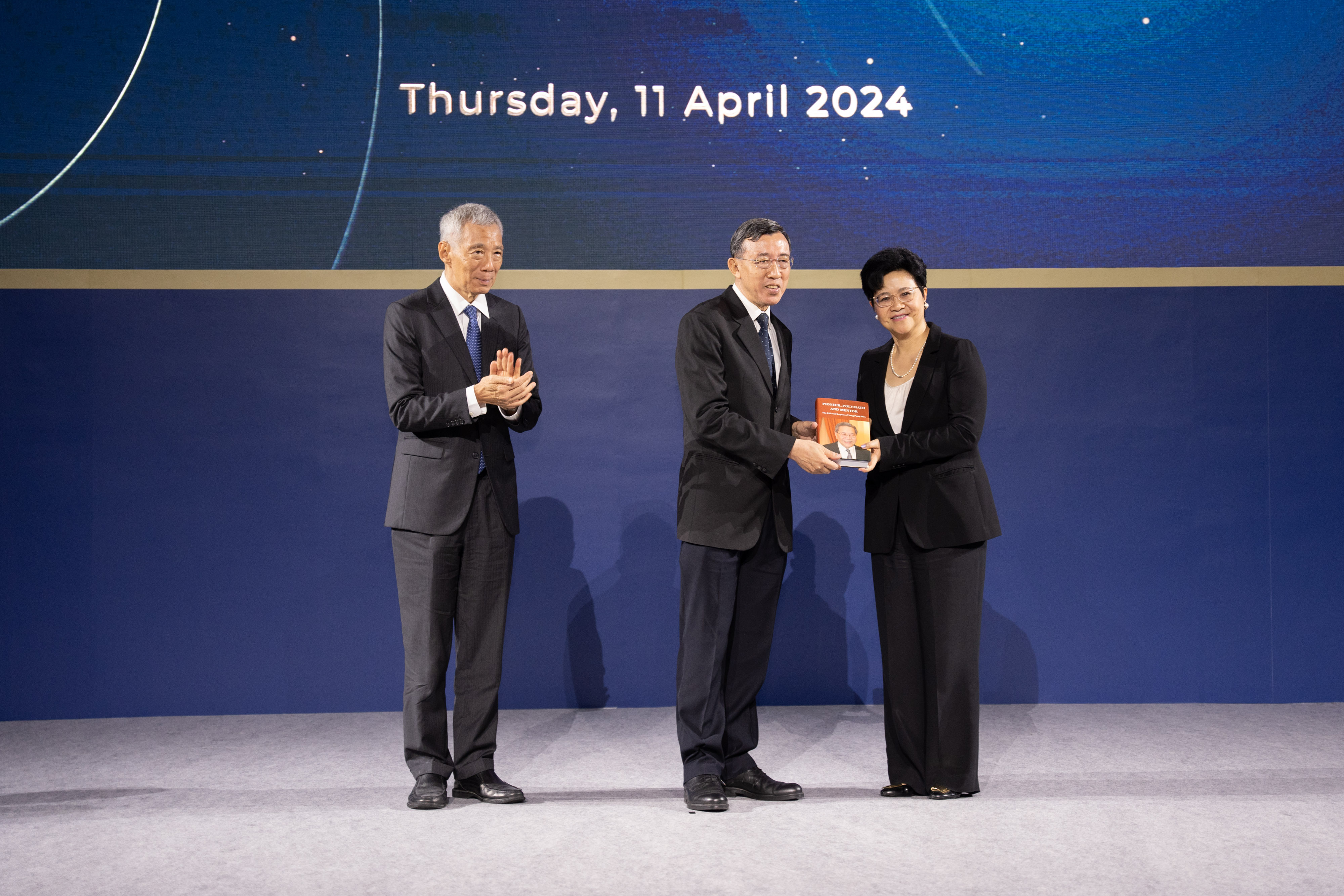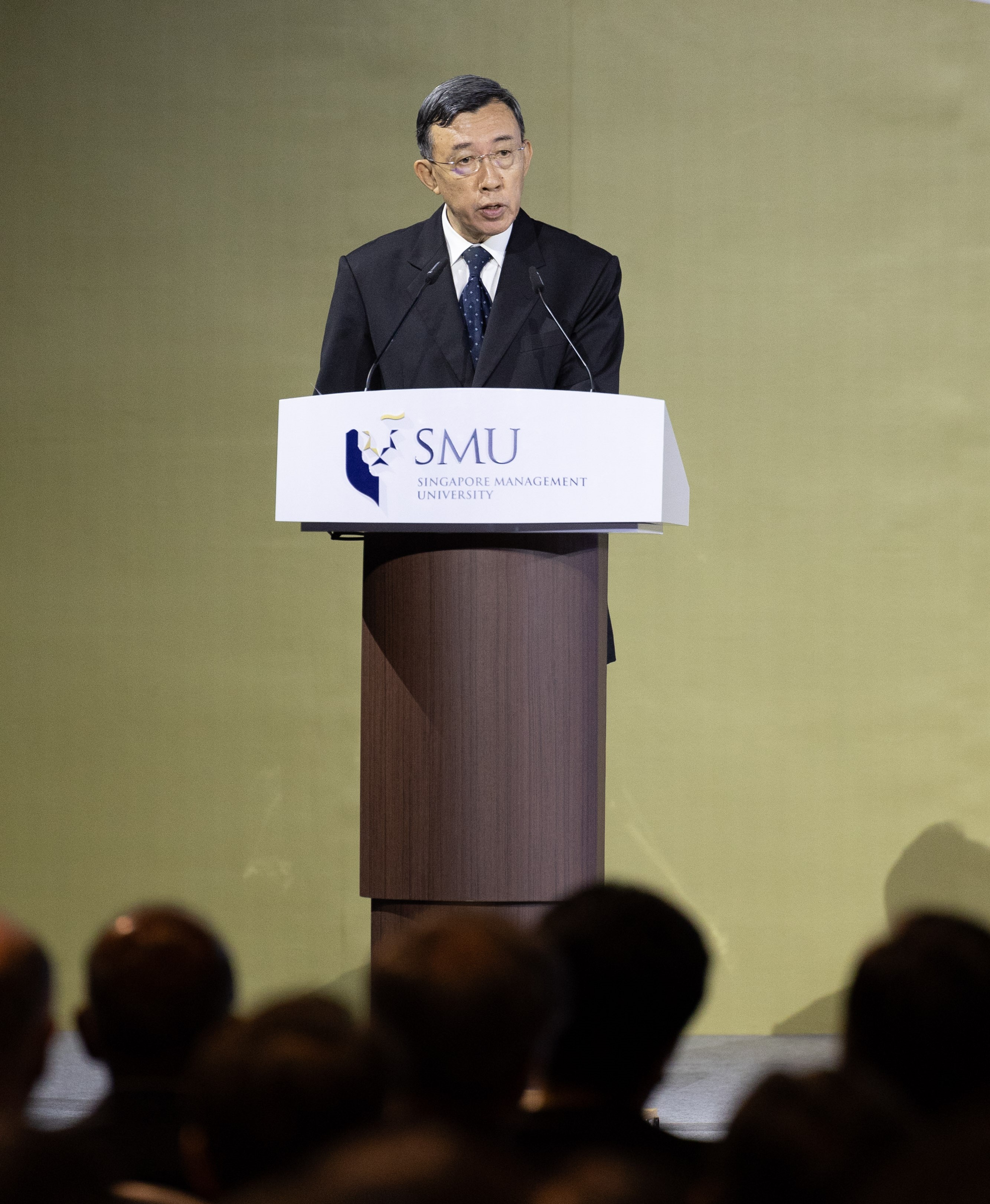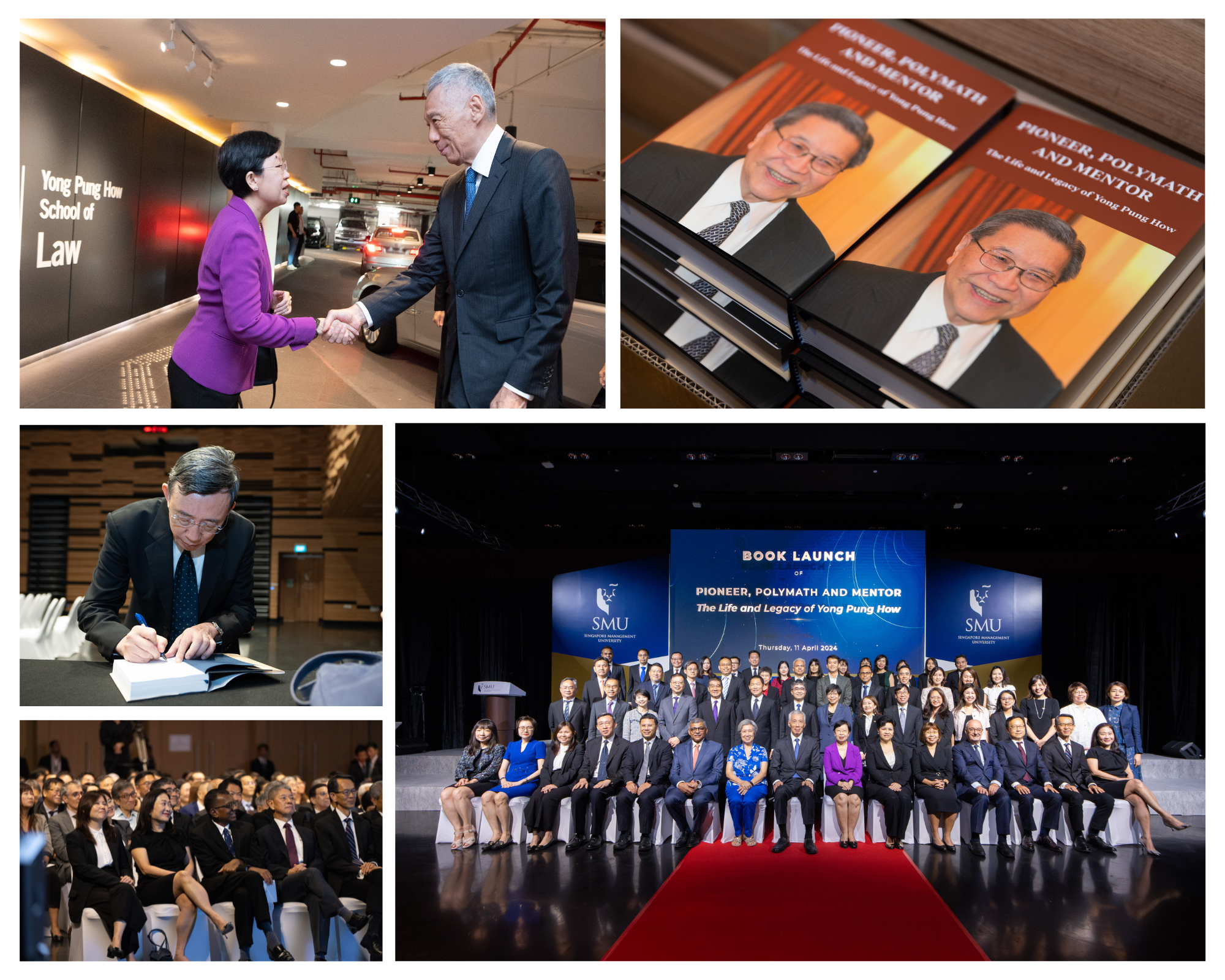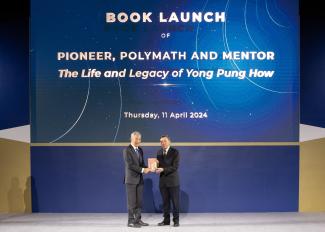
More than 400 distinguished guests, including many from the Judiciary and legal fraternity, as well as friends and family of former Chief Justice Dr Yong Pung How, gathered at SMU on 11 April 2024 to celebrate the launch of the book Pioneer, Polymath and Mentor – The life and legacy of Yong Pung How.
Written, compiled and edited by Justice Andrew Phang, who is presently a Senior Judge as well as Distinguished Professor at the SMU Yong Pung How School of Law, the book examines Dr Yong’s remarkable life and legacy.
Prime Minister Lee Hsien Loong joined the event as Guest-of-Honour. Other eminent guests included Ms Yong Ying-I, daughter of Dr Yong Pung How; Chief Justice Sundaresh Menon; Ministers K Shanmugam, Edwin Tong and Desmond Lee; members of the Judiciary; as well as SMU Board of Trustees, faculty and students.
In his speech, Prime Minister Lee, who penned the Foreword of the book, said that Dr Yong was a pioneer leader who made decisive contributions to Singapore across both the public and private sectors. “His illustrious career spanned many of Singapore’s key institutions, in whose creation and subsequent development he played an outsized role. His service to our nation has benefitted generations of Singaporeans, even to this day,” he said.
During his tenure, Dr Yong tightened case management, modernised court processes, and championed the use of technology to improve efficiency. He built capacity by expanding the Bench, and setting up specialist courts. He also introduced the Senior Counsel scheme to recognise our most skilled advocates, and to spur young lawyers to strive for excellence.
“Dr Yong’s labours transformed our judicial system and brought it into the 21st Century. Within a decade of his becoming CJ, Singapore’s legal system was rated the best in Asia, and recognised as being among the top in the world, ahead of most OECD countries. He was indeed a transformative Chief Justice,” he added.
In addition to eight chapters written by Justice Phang, the book features contributions from more than 70 individuals – including past and present members of the SMU leadership team, as well as 64 former Justices’ Law Clerks who pay their tribute through their contribution to a chapter of the book.
Chief Justice Menon said that Dr Yong was one of those rare individuals whose immense influence on our systems and institutions, and on the history of our nation, was matched by his profound impact on each of the many lives he touched. “It is clear from these tributes that Dr Yong was so much more than their first boss; he was also an inspiration, a guide, and a father figure in their journey through the law and through life itself,” he said.
In her speech, SMU President, Professor Lily Kong, said that the pivotal role and leadership from Dr Yong during SMU’s nascent years and in establishing SMU's law school cannot be overstated.
“As the Founding Chairman of the advisory board of SMU School of LawDr, Yong led its establishment, set the tone for what it would stand for, and shaped the curriculum to deliver on a clear and firm vision. He also played a central role in recruiting and retaining top-tier faculty. Such is the strong foundation upon which our law school has been built and continues to grow in global rsociety. Holding fast to his beliefs, the law school’s curricula situated legal knowledge and skills within broadereputation.”
Dr Yong’s strong conviction and enduring values shaped the ethos of the law school. “He appreciated – perhaps before most – that the law must operate within the fabric of societal dynamics, and gives due consideration to the forces of globalisation and technological disruptions.”
She added, “Dr Yong also believed in harnessing technology, exemplified by the extensive reforms he implemented in Singapore’s court system. In the same pioneering spirit, SMU’s law school has boldly integrated technology into legal research as well as education.”
Ms Yong Ying-I thanked Justice Phang for his ‘labour of love’ in writing this biography about her father’s life and work ‘in record time’. “As many of his friends in the judiciary know, my father was not keen to write his autobiography after he retired. He was quite a private person, happiest with family and a small circle of friends, and he did not feel comfortable writing about what he had done. He wondered if it would be seen as showing off.”
“My father would have been appreciative of having his pioneering efforts documented, and he would be moved by the way you and other contributors have presented the content. Not to mention launching the book on his birthday! I hope that readers will enjoy the book and get some useful insights they can use,” she added.
Expressing his heartfelt appreciation to Ms Yong and her mother for their invaluable support and encouragement, Justice Phang said that the book could not have been brought to fruition without the kindness and assistance of a great many persons.
“The international standing of Singapore law today, as this book demonstrates, owes much to his efforts and leadership. What is little known is that he was also a man of great humanity and compassion. Often portrayed in the mass media as a stern judge who did not brook (especially) criminal conduct, such a superficial description did not do justice to who he actually was. Whilst he was indeed strict (albeit only when the occasion merited it), he was also profoundly compassionate and empathetic,” said Justice Phang.
The book, published by Academy Publishing, is available for purchase at https://store.lawnet.com/.
- End -
